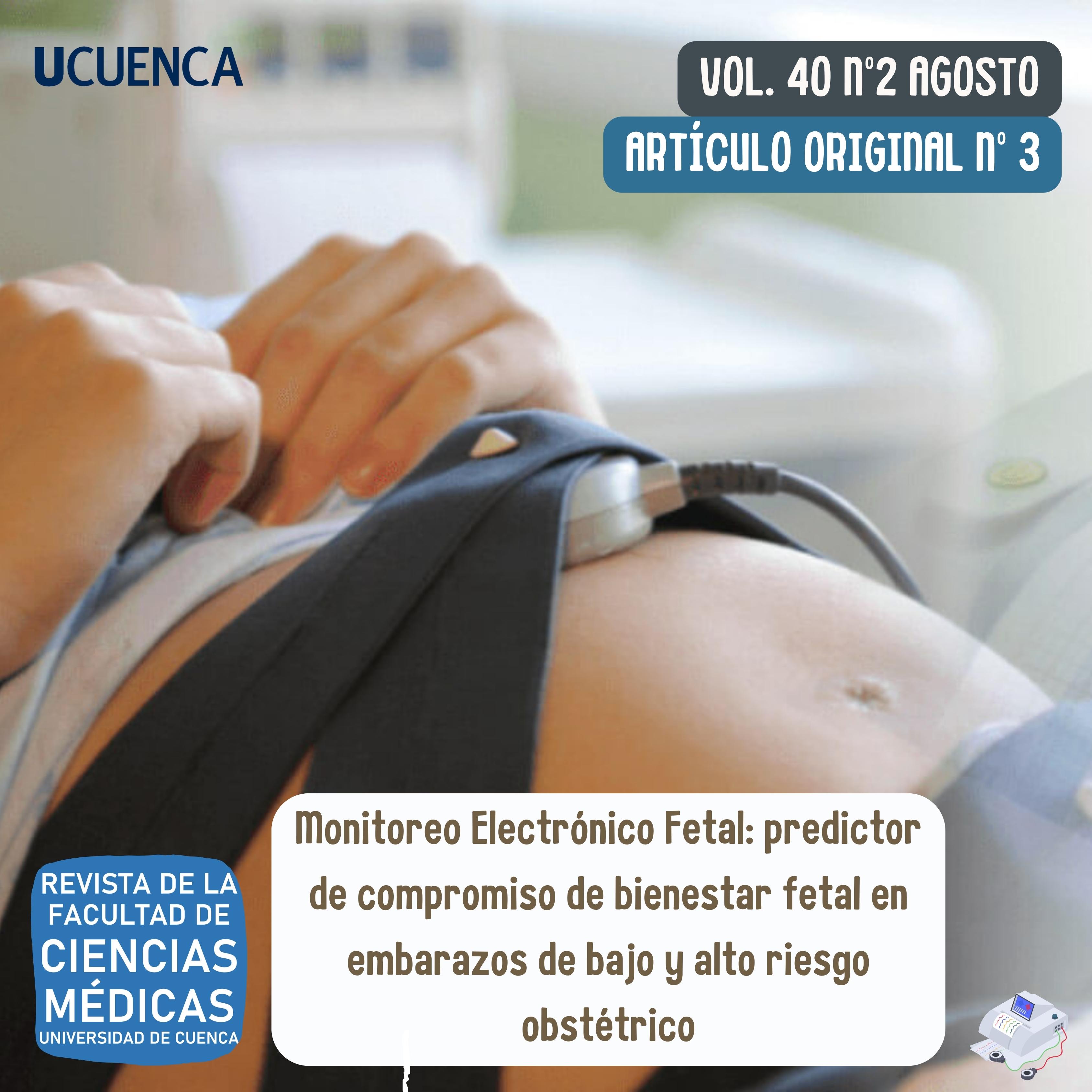Monitoreo electrónico fetal: predictor de compromiso de bienestar fetal en embarazos de bajo y alto riesgo obstétrico
DOI:
https://doi.org/10.18537/RFCM.40.02.04Keywords:
monitoreo fetal, epilepsia benigna neonatal, frecuencia cardiaca fetal, sufrimiento fetalAbstract
Electronic fetal monitoring during labor may be associated with a reduction in neonatal epileptic seizures; however, it was related to the increase in cesarean section rates in health centers. The purpose was to estimate the validity of electronic fetal monitoring as a predictor of compromised fetal well-being in low- and high-risk obstetric pregnancies at the Vicente Corral Moscoso Hospital. A quantitative observational study was carried out to validate the diagnostic test. The population consisted of 412 pregnant women with a diagnosis of full-term pregnancy. The study variables were: electronic fetal monitoring with the Apgar test of the newborn. A form was drawn up to collect the data. Statistical analysis was performed with the SPSS 25 program. The results were presented: for qualitative variables: frequencies and percentages, for quantitative variables—mean and standard deviation; sensitivity (S), specificity (E), positive predictive value (PPV), negative predictive value (NPV) and ROC curve to estimate the predictive value of electronic fetal monitoring (EFM). the MEF in patients with high obstetric risk, as a predictor of compromised fetal well-being at minute, had S = 30%, PPV = 5%, E = 80.94% and NPV value 94.93%. Likewise, the MEF had a low prognostic value, without statistical significance (AUC = 0.5537; 95% CI 0.4020 - 0.7054; p = 0.0774) to predict compromised fetal well-being.
Downloads

Published
Issue
Section
License
Copyright (c) 2023 Jaime Adrián Chávez Webster, Zoila Katherine Salazar Torres, Kimberly Nicole Sandoya Maza, Hernán Alejandro Ramírez Morales

This work is licensed under a Creative Commons Attribution-NonCommercial-ShareAlike 4.0 International License.
Copyright © Autors.

You are free to:
 |
Share — copy and redistribute the material in any medium or format |
 |
Adapt — remix, transform, and build upon the material for any purpose, even commercially. |
Under the following conditions:
 |
Attribution — You must give appropriate credit, provide a link to the licence, and indicate if changes were made. You may do so in any reasonable manner, but not in any way that suggests the licenser endorses you or your use. |
| NonCommercial — You may not use the material for commercial purposes. | |
| ShareAlike — If you remix, transform, or build upon the material, you must distribute your contributions under the same license as the original. |
| No additional restrictions — You may not apply legal terms or technological measures that legally restrict others from doing anything the licence permits. |





